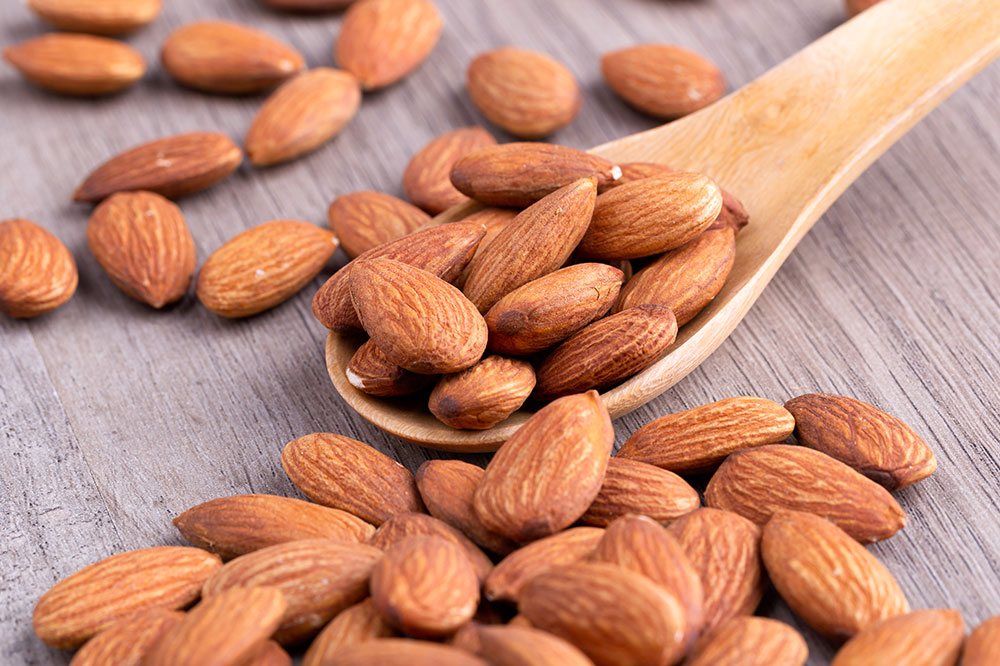Foods to eat for reducing excessive sweating
While sweating is completely natural and, in fact, healthy, excessive sweating or hyperhidrosis can be caused by underlying health conditions like diabetes, menopause, and tuberculosis. Following a nutrient-dense food regimen plays a crucial role in keeping one healthy, and in this case, it can help one manage hyperhidrosis. On that note, here is a list of must-have foods one should eat daily to keep their body cool and decrease sweating.

Foods to eat
Water-dense fruits and vegetables
Staying hydrated is a great way to manage excessive sweating. One can add water-dense fruits and vegetables to their meals in addition to drinking water and beverages that are low in sugar. Regularly eating watermelon, apples, oranges, peaches, pineapples, spinach, lettuce, cucumbers, bell peppers, strawberries, grapes, celery, eggplant, and red cabbage can reduce excessive sweating episodes.
Calcium-rich foods like low-fat milk, cheese, and yogurt
Calcium is an essential mineral that regulates the body’s temperature. Getting enough calcium through meals is vital for those dealing with excessive sweating. A few calcium-rich foods include milk, cheese, yogurt, and dark leafy greens. Those who have been told to decrease their fat intake due to health reasons can look for low-fat substitutes of yogurt, cheese, and milk. It is important to note that having low-fat foods can be beneficial for those with hyperhidrosis, as the body needs more energy to digest high-fat foods, leading to excessive sweating.
Green tea
Decaffeinated green tea is a great way to keep the body cool. This beverage is known to help calm the nerves, thereby reducing sweating. One can think of replacing their daily cup of Joe with tea.
Magnesium-rich foods like almond, cashew, spinach, and soy
Excessive sweating can cause a deficiency in magnesium, so it is important to include foods like spinach, almonds, soy, pumpkin seeds, cashews, and dark chocolate in one’s meals. Magnesium boosts the immune system and increases metabolic and nerve functioning.
Olive oil
Olive oil is an ingredient that is a powerhouse of nutrients. It is highly beneficial for those with hyperhidrosis, as it can help reduce sweat. It is rich in antioxidants, helps boost metabolism, and is known to improve digestion.
Water
Since hydration is key to keeping the body cool and well-functioning, drinking water should be one’s top priority. It is also easy to follow this; carry a bottle while traveling or keep one at the desk while at work! Drinking eight glasses of water used to be an ideal standard, but this actually depends on several factors like one’s lifestyle, activity level, body temperature, and environment. Just make sure to stay hydrated!
Foods rich in vitamin B
Salmon, beef, leafy green vegetables, and eggs are some of the richest sources of vitamin B. Adding these to one’s meals will help metabolic functions run smoothly. Those with a weak metabolism should note that their body may take much longer to digest food, leading to excessive sweating.
Apart from the foods mentioned above, one of the new options for alleviating the symptoms of excessive sweating is Botox injection. This treatment option blocks the nerves that help in activating the sweat glands. Botox treatment has been FDA-approved only for the treatment of hyperhidrosis in the underarm area. The treatment can be expensive and may not always be covered by insurance. It is best to seek doctor’s advice before resorting to Botox for excessive sweating.















